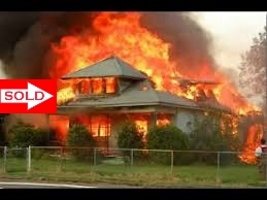My Home Caught Fire: Now What?

Every year, thousands of homes across the country suffer from fire damage.
Even a tiny fire can be devastating to the belongings of home owners as well as their wallets. However, it is not the end of the world if you have been such a victim. Here are a number of steps to take and save your real estate investments:
1. Cut your Losses
Do not try and salvage burnt property. Although it can be painful parting with a significant portion of your home, burned and charred wood should be replaced.
2. Get Rid of The Soot
Soot left over from the fire is corrosive. It can damage any surface it happens to rest upon. After clearing the damaged property, clean all the soot to ensure your investment is intact. A bit of cleanliness after the fact also tends to bring a sort of calm and even helps to clear the mind.
3. File a Claim
If you have a homeowners insurance, file a claim to get compensated for the costs of upcoming repairs. Be sure to take detailed notes. And send pictures with a list of damages because the insurance company won’t reimburse unless they have proof that something got destroyed. Once you have filed the claim, be sure to follow it up. Find out whether you are going to be compensated in full or partially.
4. Handle the Smell
Regardless of the size of the fire, you’ll need to deal with the lingering smell of smoke. Beyond just an unpleasant smell, it can kill the property value when you decide to sell the house. Remedying the odor can be accomplished through a smoke-concealing spray and by treating all the exposed wood. Some companies also offer oxy-treatment chambers which can be helpful. In case the smell is intolerably bad, consider demolishing the area and starting over from scratch.
5. Move Fast
The crucial thing to repairs after a fire is moving fast. Try not to play the hero by salvaging things that are in the midst of the fire, no matter how dear they might be to you. Do not linger over what can’t be saved , rather focus on what can be.
Conclusion
A fire striking your real estate investment is a tragedy. But when you follow these tips, the recovery will be a lot easier. Getting a hold of the situation before it gets out of hand ensures that you have a home that can still be sold off for a good price even though most of it has been burned down to the ground.